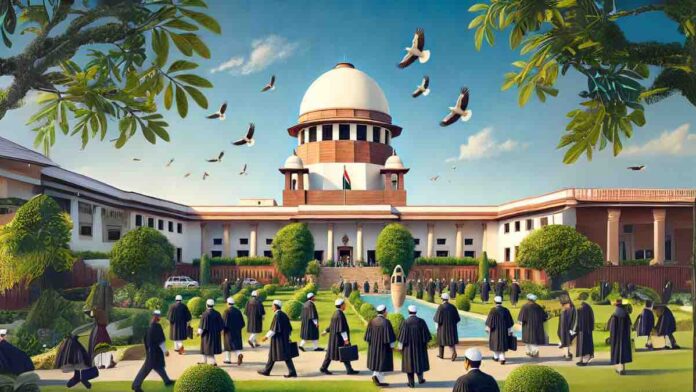In a recent ruling, the Supreme Court of India has firmly established that candidates who have participated in a selection process and were declared unsuccessful cannot later challenge the advertisement or the selection methodology. This landmark judgment, delivered on August 21, 2024, by a bench comprising Justice Bela M. Trivedi and Justice Satish Chandra Sharma,
To Read More Please Subscribe to VIP Membership for Unlimited Access to All the Articles, Download Available Copies of Judgments/Order, Acess to Central/State Bare Acts, Advertisement Free Content, Access to More than 4000 Legal Drafts( Readymade Editable Formats of Suits, Petitions, Writs, Legal Notices, Divorce Petitions, 138 Notices, Bail Applications etc.) in Hindi and English.




